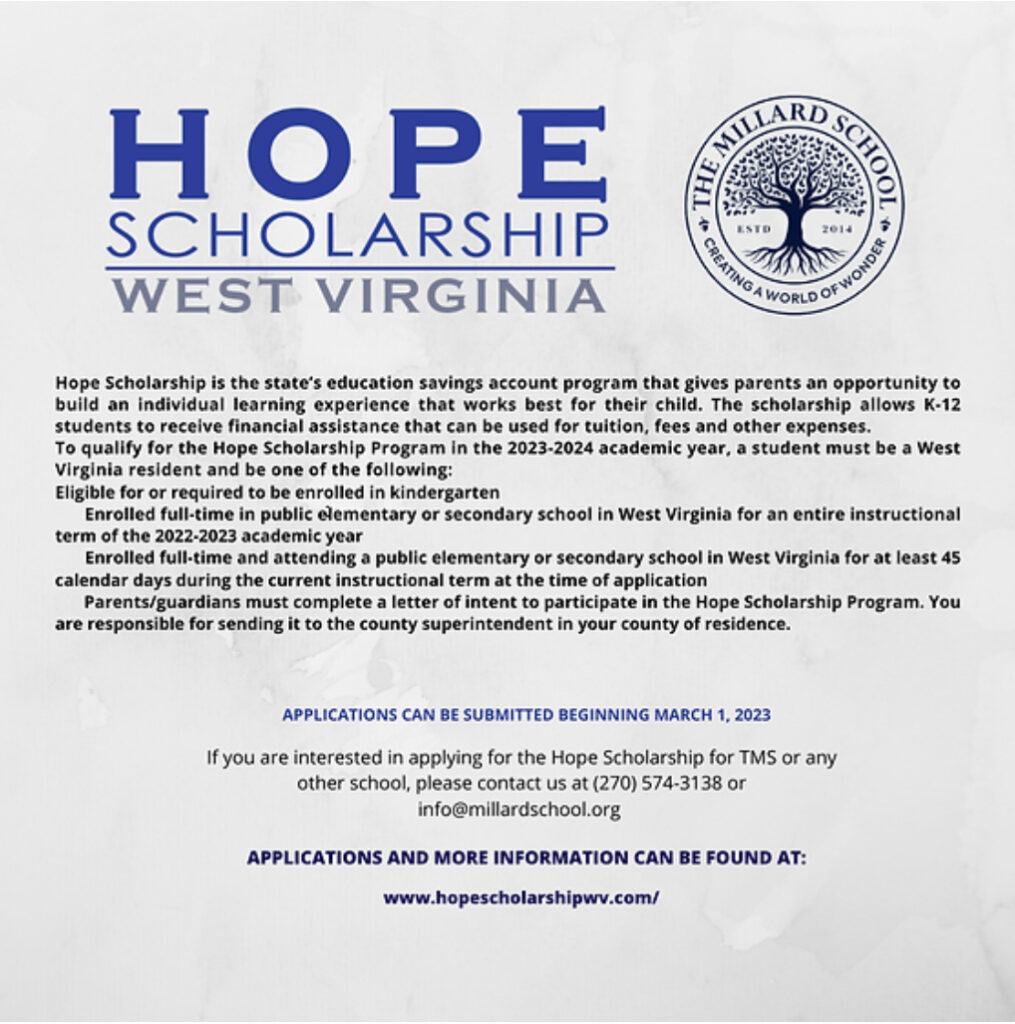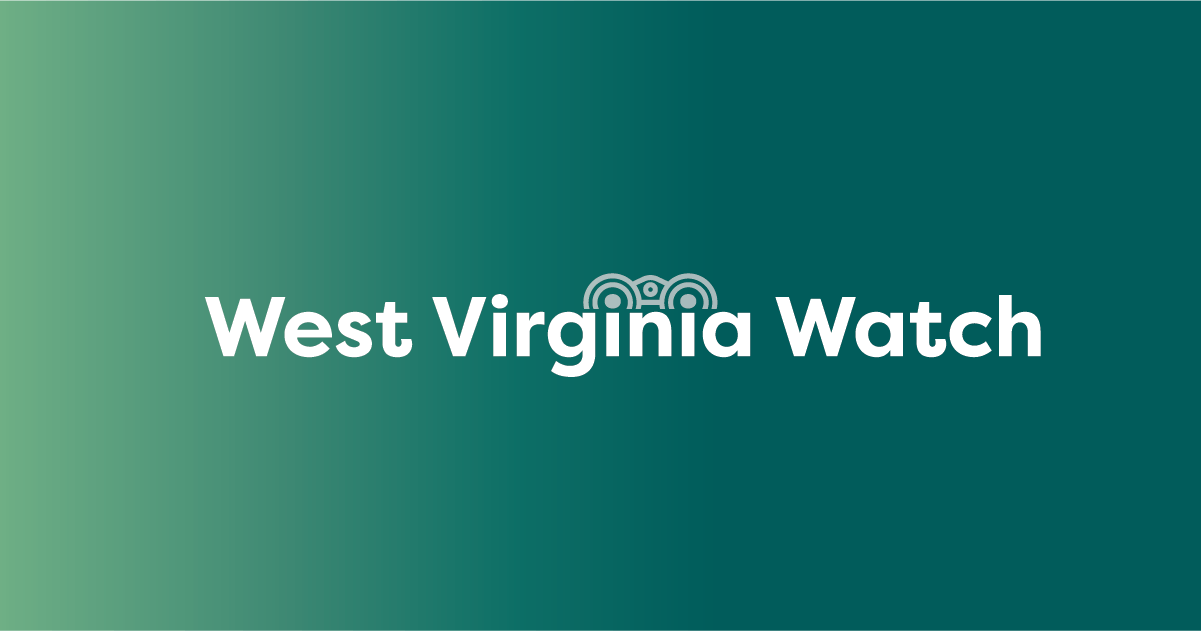Legislation that created the state’s broad education savings account program didn’t restrict or require the education providers to be located in West Virginia
BY: AMELIA FERRELL KNISELY – AUGUST 29, 2023 6:00 AM
More than $300,000 in Hope Scholarship funds, which provide money for kids for private school or homeschooling, have been used at out-of-state schools that border West Virginia.
The Hope Scholarship, launched in 2021, gives West Virginia students roughly $4,400 per student in taxpayer money that would otherwise go to public schools to use for private schools, homeschooling and more.
Last year, more than 2,300 students were awarded the scholarship funds. Around $10.4 million was allocated for the Hope Scholarship in its first year; out-of-state spending for education accounted for about 3% of those funds, according to the State Treasurer’s Office.
Legislation that created the Hope Scholarship didn’t restrict or require the education providers to be located in West Virginia. This year, more than 5,000 students were awarded the scholarship.
The State Treasurer’s Office shared the financial data with West Virginia Watch.
West Virginia Center on Budget and Policy Executive Director Kelly Allen obtained her own records about the Hope Scholarship’s use through public records requests. She said the out-of-state spending data raised serious concerns about the lack of transparency around the program, which is the nation’s broadest education savings account program.
There’s no public reporting required, she noted.
“Of the nearly $6 million that went to non-public schools, we saw that hundreds of thousands went outside of the state,” she said. “So far, the only information that has been reported is the number of students [enrolled].”
State Treasurer Riley Moore, who is also chairman of the Hope Scholarship Board, said the program opens up educational opportunities to students who might otherwise not have been able to afford them.
“It’s essential in West Virginia that we allow middle and lower-income families the same opportunities to find the educational opportunities that best suit their child. That’s what the Hope Scholarship does and I think often gets overlooked in the policy debates,” he said.
According to the data from his office, education providers in Maryland received more than $117,600 last school year. In Pennsylvania, a private, Christian school received more than $42,400.
The Millard School, a private, Christian school in Louisa, Kentucky, has a prominent page on its website sharing information about the Hope Scholarship and how to apply.
Around $5,200 was paid to the school for this school year, according to information from the State Treasurer’s office.
The school did not respond to a request for comment.
Records from the State Treasurer’s office showed Mother of Divine Grace in Ojai, California, registered as an education provider with the Hope Scholarship but no students registered there.

Additionally, Allen said the data showed that $1.7 million in Hope Scholarship money went to non-accredited private schools. “These teachers aren’t required to have any certification,” Allen noted. “This is another [state] program that lacks all guardrails.”
The scholarship requires participants to annually submit either standardized test scores scoring above the 23rd percentile, or showing progress if below. Students can also submit a portfolio review by a certified teacher.
The Hope Scholarship program is on track to collect more than $22 million next year in tax-payer funds.
The program launched during the COVID-19 pandemic amid heightened scrutiny on public schools and how they were responding to the virus. The bill’s supporters argued for school choice and educational freedom in West Virginia, while its opponents said it would drain financial resources from public schools in one of the poorest states.
The Times West Virginian reported Aug. 26 that the number of Hope Scholarship students doubled this school year in Marion County, from around 70 last year to a little over 140 this year.
Scott Reider, treasurer for the Marion County School System, told the newspaper that the school district lost somewhere in the neighborhood of $300,000 to $350,000 from students who left the district to use Hope Scholarships.
The scholarship program currently has minimal requirements. First-time students, like kindergarteners, can be eligible immediately to apply. Older students, including those who have been homeschooled, have to enroll in a 45-day minimum period in public schools to become eligible.
“We’re proud to help empower these families with the ability to afford these opportunities,” Moore said.
After launching, the scholarship program faced legal challenges that briefly paused its implementation. In July 2022, three parents of West Virginia public school students filed a lawsuit against the Hope Scholarship program, lawmakers and others, saying the use of funds for private education was unconstitutional. A Kanawha County judge sided with the parents and blocked the state from launching the Hope Scholarship program.
The state Supreme Court of Appeals in October 2022 ruled that the program was constitutional and could continue. The scholarship program was up and running soon after.
Earlier this year, lawmakers expanded the scholarship’s use to include microschools, which are largely unregulated educational facilities which are a mix of homeschooling and private school. While they’re typically small in student size, the schools don’t have student limits.
Moore, who is running for U.S. Congress, said that he wants to expand the scholarship program by lengthening its enrollment period. Right now, families can only apply for the Hope Scholarship from March to May.
The program opens up to all eligible public, private and homeschool students by 2026.
** West Virginia Watch is a nonprofit media source. Articles are shared under creative commons license. Please visit https://westvirginiawatch.com/ for more independent Mountain State news coverage.

